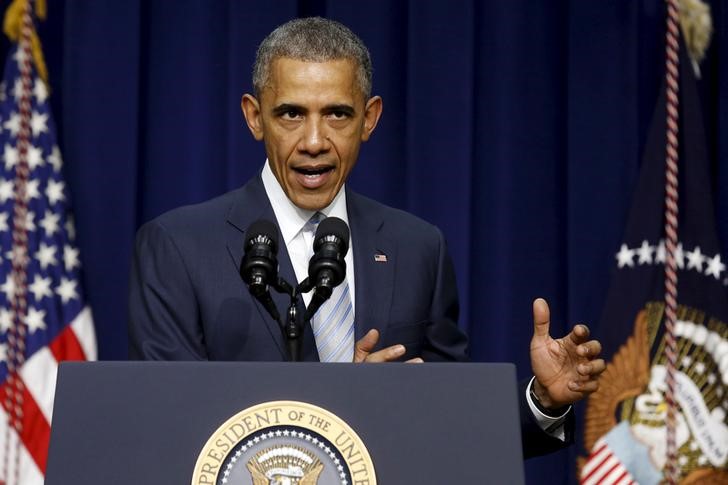By Susan Cornwell and Caroline Humer
WASHINGTON/NEW YORK (Reuters) - U.S. Republicans face a potential political backlash from voters if the Supreme Court rules soon against President Barack Obama's healthcare law, and are split over what to do about it, with some calling on the Obama administration for help.
But the White House, perhaps sensing a chance to blame Republicans for trouble, is showing no outward signs of crafting a contingency plan in case of an adverse outcome in King v. Burwell, expected to be ruled on by the end of this month.
The outcome could mean millions of Americans, many of them Republicans, would lose their Obamacare health insurance coverage. One of them might be Rosel Ettress, of Chicago.
A daycare center manager and mother of three, Ettress could lose $250 a month in tax subsidies that help her afford the premiums for her insurance under 2010's Affordable Care Act.
She said in a telephone interview that this would be a blow and she urged Republicans and Democrats in Congress to act.
"I would like for Congress to come up with a way to fix this where everyone could still get the subsidies and still save a little money in the process," she said.
King v. Burwell is the result of a lawsuit brought by anti-Obamacare libertarian activists. Ordinarily, Republicans might be expected to cheer for a ruling damaging to Obamacare, which the party has opposed since its passage.
But there are many Republicans among the 6.4 million low- and middle-income Americans who get Obamacare premium subsidies in 34 states. If those Americans lost their coverage as a result of the case, who would they blame at the polls in 2016?
REPUBLICANS DIVIDED
Republicans in Congress have been working on post-King v. Burwell plans for months, but still can not decide what to do. Some favor extending the Obamacare subsidies long enough to protect people like Ettress for a time and prevent them from possibly seeking revenge on the party.
In another approach, the Republican Study Committee, a group of some 170 House of Representatives conservatives, on Thursday proposed a model for a longer-term replacement for Obamacare.
But the group's chairman, Representative Bill Flores, said it would not offer an interim plan for the immediate aftermath of King v. Burwell, in part because members can not agree on whether to temporarily extend the Obamacare subsidies.
"I will not vote to extend the subsidies unless the president is willing to sit down with us and do the things to reduce the overall cost of the premiums," said Representative Austin Scott, a member of the committee, at a news conference.
In the Senate, there was rising Republican anxiety about what might need to be done in the wake of King v. Burwell.
Twenty-one of 24 Republicans who are running for re-election to the Senate next year are from states on the federal exchange, Healthcare.gov, which King v. Burwell specifically targets and from which the court could make the subsidies disappear.
"Millions have grown accustomed to those subsidies and we're gonna have to replace them" if the court nixes them, Republican Senator John McCain of Arizona told Reuters earlier this week.
One of the senators running for re-election in 2016, Ron Johnson of Wisconsin, has 31 co-sponsors including McCain for his bill to extend the Obamacare subsidies through August 2017.
Senator John Barrasso of Wyoming, a Senate Republican leader, this week said Obama should step in. "The president made the mess. He doesn't seem to be a willing partner to work with in finding solutions to the mess he's made," Barrasso said.
White House officials said they have no Plan B if the Court rules against the administration.

"If the Supreme Court were to throw the health care system in this country into utter chaos, there would be no easy solutions for solving that problem," spokesman Josh Earnest told reporters at a briefing on Wednesday.